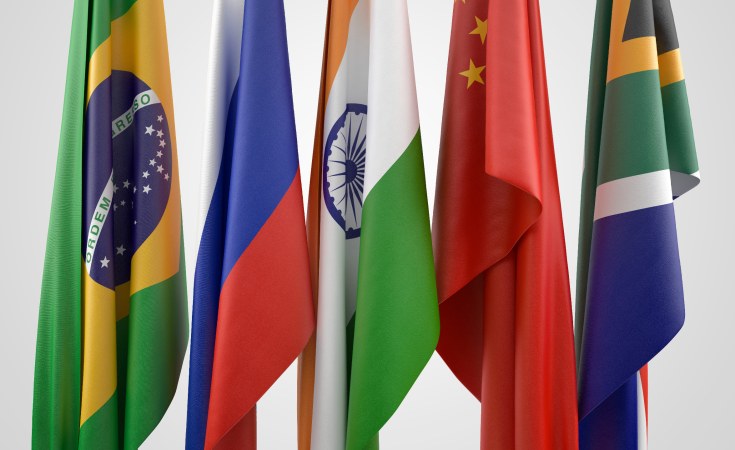Expanding BRICS from five to 11 members offers the bloc greater economic and political clout, but could also create tensions between members and with the West.
Admitting six new members to BRICS will add heft to the bloc's efforts to rebalance the global economic and political order. But it will also bring its own problems, including importing new tensions.
And, in particular, accepting Iran raises the prospects of souring relations with the US and the wider West.
The five BRICS leaders announced on Thursday after their 15th summit, in Johannesburg, that they would admit Iran, Egypt, Ethiopia, Argentina, Saudi Arabia and the United Arab Emirates as full members on 1 January 2024. Twenty-two countries had formally applied for membership, and wrangling over which to admit delayed by a day the release of the summit declaration and the announcement of the new members.
At the BRICS outreach summit on Thursday, when the BRICS leaders were joined by about 60 other world leaders, they all agreed that the expansion of BRICS from five to 11 members would give it greater clout.
Brazilian President Luiz Inácio Lula da Silva said the addition of the six members would increase the combined GDP of the BRICS countries to 37% of global GDP in purchasing power parity terms and increase its share of the world population to 46%. He dismissed concerns that...


